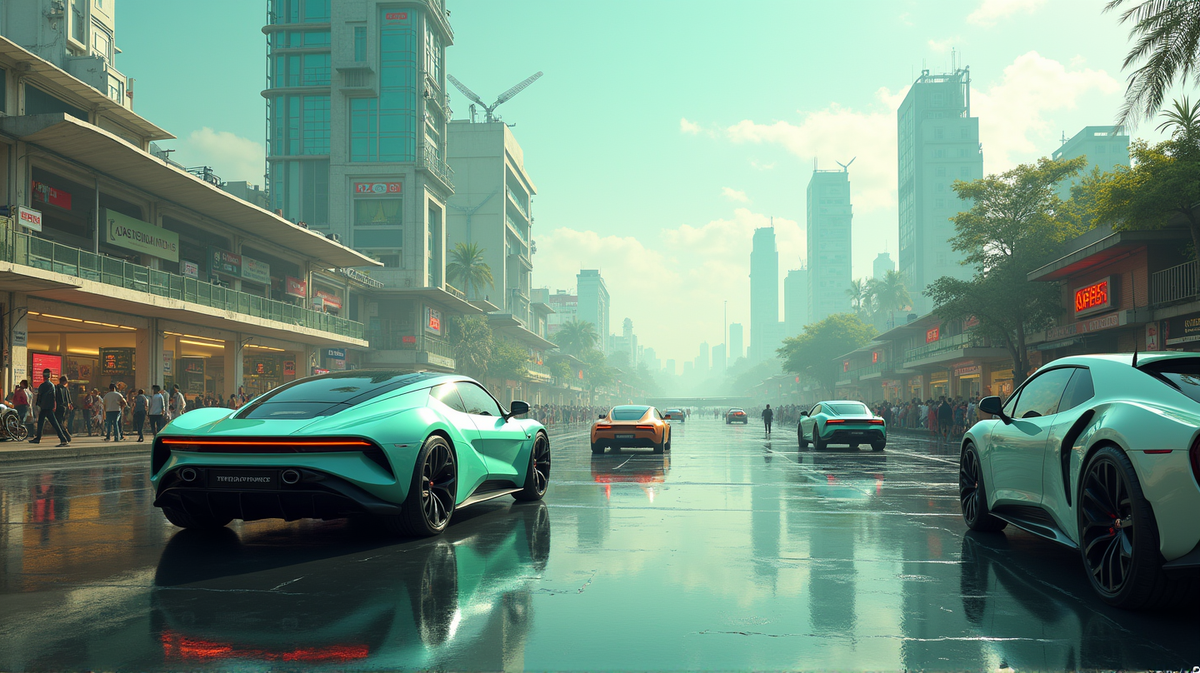India's Automotive Industry: Innovations and Challenges Ahead
India's automotive sector navigates policy clarity, green transitions, corporate investments, and challenges ahead of the festive season.

In an era where every street corner of the automotive world resonates with change and progression, India’s automotive landscape braces for a varied and vivid future. From SIAM’s assurance on E20 fuel warranties to significant advancements in electrical vehicles (EVs), the nation seems poised at the confluence of opportunity and challenge.
Waving Off Concerns with E20 Fuel into Opportunities
India’s automotive week stirred relief as the Society of Indian Automobile Manufacturers (SIAM) confirmed the warranty validity for older vehicles utilizing E20 fuel. This vital announcement mitigated tension among vehicle owners, ensuring that their loyal machines continue unfazed by ethanol-blended petrol.
E20’s promise transcends the individual, paving the way for a nationwide economic boon with a ₹40,000 crore windfall anticipated for farmers and substantial foreign exchange savings. Such moves dovetail with a larger national ambition to scale sustainability efforts while fortifying rural economies. According to Autocar Professional, India aims to achieve a transformative economic balance.
Pledges for the Green Horizon
Corporate dynamo, Reliance Industries, unfurled an ambitious layout at their 48th AGM with futuristic plans encompassing high-capacity giga-factories for clean energy components. This strategic bet on solar, batteries, and hydrogen stands to rewrite India’s mobility ecosystem, marrying technology with sustainability.
Maruti Suzuki and the EV Challenge
While the green wave rolls, Maruti Suzuki’s RC Bhargava shines a spotlight on the looming dependency on imported EV battery cells. Here lies a cautionary tale—India’s vulnerability to raw material sources could hinder investments in local manufacturing, underscoring the nation’s urgent need to incubate an autonomous supply chain.
Tyre Trade Tangles and a Call for Uniform GST
Global trade dynamics present their challenges as the US ups its import tariffs, pressuring India’s tyre industry. The automotive giants, Royal Enfield, continue their call to policymakers for a uniform GST regime across two-wheelers—recognizing motorcycles as vital economic vehicles rather than luxury items.
Electrifying Ambitions and Seasonal Readiness
The march towards an electric future is relentless. Ather Energy and TVS Motor maneuver strategically to capture the sub-Rs 1 lakh electric scooter market, unveiling products designed not only for efficiency but also for the Indian consumer’s pocket.
Navigating a Festive Finishing Line
As the festive season nears, the air crackles with anticipation. Companies across the automotive spectrum stock up, with retail sales soaring. Yet, amidst these celebrations, inventory builds up, reflecting ongoing demand-side challenges.
The industry’s narrative is one of resilience, adaptability, and foresightedness. With every challenge encountered, India’s automotive sector crafts innovation and policy into a harmonic blend for progress. As per the vivid declarations and projects outlined this week, the path ahead is as much about carving a sustainable future as it is about nurturing the roots of execution.





